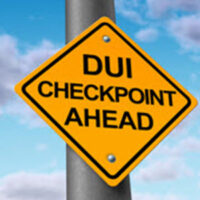Should You Take the Field Sobriety Test?

Drivers often get pulled over because police officers suspect that they have been driving under the influence (DUI). However, this is not always the case. Usually in this case, the police officer already believes that the driver has consumed alcohol and will ask him or her to submit to a standard field sobriety test.
If the driver refuses to perform the field sobriety test, the police officer will ask complete a chemical test. Typically, the chemical test would be performed by giving breathalyzer, urine sample or blood test.
So, are drivers required to agree to take a field sobriety test? If requested, are drivers required to perform the chemical test? Both of these tests are employed by police officers to obtain probable cause in order to arrest the driver for a DUI. It is important to mention that refusal to submit to a field sobriety or chemical test is not the same.
The Standardized Field Sobriety Test
During a traffic stop, the standardized field sobriety test is a series of three different tests implemented to ascertain if a driver is impaired. The three tests include walking and turning, the horizontal gaze nystagmus, and the single leg stance. The evidence acquired from the standardized field sobriety test is admissible in court.
Sometimes police officers falsely inform drivers that the roadside sobriety tests are compulsory, while other officers explain to drivers that the tests are voluntary. Seeing as there are not any statutory penalties for saying no to the field sobriety test, why should drivers give the police more evidence against themselves? The field sobriety test is highly subjective and even some sober drivers may have difficulty passing it.
In cases where drivers refuse to submit to a field sobriety test, no statutory penalty exists for refusing. However, if the driver refuses to take a chemical test, which may be completed with breath, urine or blood, his or her driver’s license will automatically be suspended for a term of one year, for the first refusal. If the driver refuses a second time, his or her license will be suspended for 18 months. Under Sec. 316.1932 of the Florida Statutes, upon receiving a driver’s license, all Florida drivers consent to submit to a chemical test if they are placed under arrest for DUI.
Don’t Hesitate to Contact a Skilled DUI Attorney
While choosing not to take a field sobriety test may be in your best interest, refusing to submit to a chemical test is an automatic 12-month suspension of your driver’s license. The 12-month suspension takes place even if you were not drinking.
Working with an experienced DUI attorney will assist you in creating a suitable defense strategy. It is important that our clients know about all of their defense options. With the help of a Port St. Lucie DUI attorney at Baginski Brandt & Brandt the chances of beating your DUI case are significantly higher. Since being arrested on DUI charges can be a scary and intimidating process, we suggest contacting our expert attorneys immediately.
The Port St. Lucie DUI attorneys at Baginski Brandt & Brandt have over 50 years of combined legal experience. You can count on our qualified team to aggressively represent your interests. Call today at 772-466-0707 or contact us online to discuss your DUI charges further.
https://www.bbblegal.com/your-chances-of-beating-a-dui-case/


